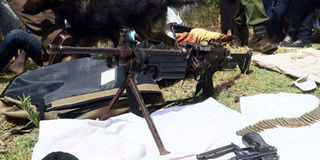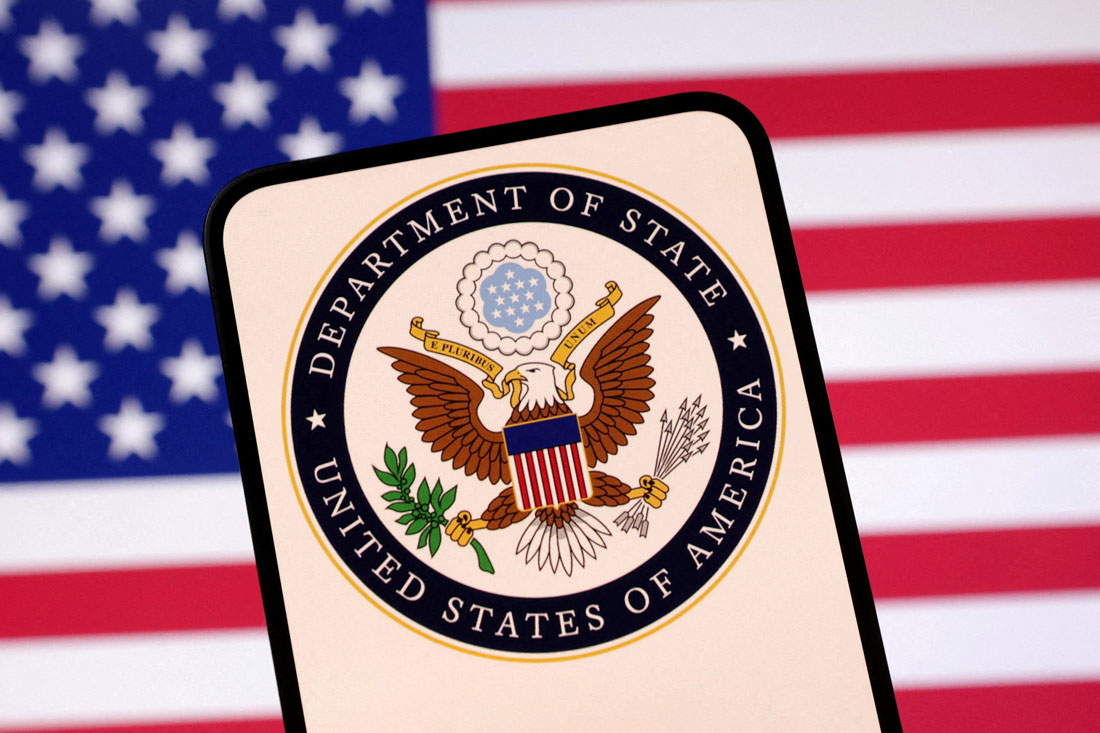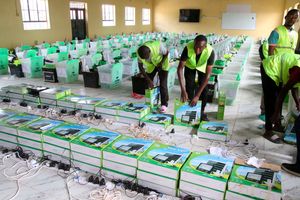Premium
Organised gangs continue to operate despite ban

Firearms confiscated by police at a homestead in Bahati, Nakuru County, on March 16, 2017. PHOTO | NATION MEDIA GROUP
What you need to know:
- Gang membership has gone beyond the traditional youthful men to include women and children, some as young as nine years.
- The NCIC asked the Public Service, Youth and Gender ministry to establish a social welfare scheme for jobless youth.
More than 100 organised groups are currently operating across the country, with women and children increasingly joining such organisations, the commission on cohesion has said.
Many of the groups are funded by politicians, their relatives, businessmen and government officials and were deployed during the electioneering period last year, causing wanton mayhem.
The National Cohesion Commission (NCIC) said that its study revealed that there is an increased proliferation of organised gangs.
“While the Government outlawed only 90 organised criminal gangs in 2016,” it said in the report released last week, “the study has identified 116 organised groups that have participated in political violence from only 15 counties”.
“It notes that some of these gangs continue to operate even though they are legally prohibited, demonstrating escalating levels of lawlessness and impunity in the country that encourage formation and even bolder actions from existing gangs.”
RECRUITS
Apart from the proliferation, gang membership has gone beyond the traditional youthful men to include women and children, some as young as nine years.
The NCIC said that deployed during the campaign period, and working at the behest of politicians, the gangs’ actions resulted in a change in voters’ preferences, resulting in a change in the outcome of the elections.
They also aggravate the impact of the inflammatory remarks, hate speech and incitement to violence that is characteristic of election campaigns by engaging in violence.
“Gangs fortify political zoning, which in turn not only polarizes communities, but also balkanizes the country along ethnic lines,” the NCIC said.
The NCIC’s study was conducted between November 2016 and June 2017 in 15 of the 47 counties.
SOCIAL MEDIA
Interestingly, it included in the list of gangs a group of people known as “36 Bloggers”, who are said to operate accounts on social media for high-profile politicians.
The group has been a combination of myth and running joke on Twitter.
According to the study, gangs that were proscribed long ago, such as the Mungiki, Chinkororo, Sungusungu, Taliban, Kosovo Boys and Kamjesh are still active.
Groups that were banned in 2016 — Gaza, Confirm, Kabuchai Defence Force, Boston Boys, Wakali Wao, Super Power and China Squad — were said to be engaged in political violence last year.
The NCIC attributed this to weak enforcement of the law, inadequate training, resources and deployment of the Special Crimes Prevention Unit officers to the counties, the support the gangs get from the community, politicians and government officials, and the near-total impunity they enjoy.
“One of the outcomes of the government bans on criminal gangs is that some groups have sought to hibernate and camouflage their activities in areas where they used to be dominant,” the NCIC said.
EMPLOYMENT
Mungiki, for example, re-emerged under such groups as Quails in Kiambu County, Siafu in Nairobi, Kwekwe in Murang’a and Gaza in Nairobi, the report says.
Sometimes, members of the old gangs organise and mobilise the new ones, with NCIC study finding that a former member of the proscribed Sabaot Land Defence Forces was the founder of 40 Brothers, a gang in Bungoma.
There were also reported to have been similar links between Mungiki and Gaza, both of which operate in Nairobi and Murang’a counties.
While unemployment has been blamed for all manner of social ills, the NCIC report says that 81 per cent of gang members, especially those that unleash violence incited by politicians, are employed, particularly in the informal sector.
They are mostly boda boda riders, touts, taxi drivers, hawkers, jua kali traders and employees of community-based organisations.
“Those who join these groups, therefore, do not do so merely because they are poor.
"Poverty most likely makes them more vulnerable to recruitment but these are not necessarily the poorest or most destitute members of the community,” the NCIC said.
GANG PROFILING
Ex-convicts and ex-servicemen were also found to be involved in the organised groups.
The findings suggest that inmates are not prepared to face life outside prison.
Ex-servicemen were found to be involved in organising security for politicians and getting involved in gangs, a phenomenon that was also prevalent in the 1990s.
The NCIC said that county officers were also involved in the activities and were mostly deployed to serve the interests of incumbent governors ahead of the last polls.
It recommended that the police profile gangs and strengthen operations against them to prevent regrouping, repackaging and the formation of new gangs.
“There is also a need for the Judiciary to review and strengthen indigenous alternative dispute-resolution mechanisms that might be applicable in dealing with cases of organised gangs,” the NCIC in the report said,
RALLIES
It also asked the Public Service, Youth and Gender ministry to establish a social welfare scheme for jobless youth.
It asked the Education ministry to forbid students from participating in political rallies, ban the use of school buses and school grounds for political events and establish more schools in b order areas.
“Moreover, a substantial role in mitigating the impact of organised gangs lies with communities at local levels who are advised to enhance their cooperation and relationship with the police, as well as use legally established structures for dispute resolution instead of relying on support from gangs,” it concluded.





